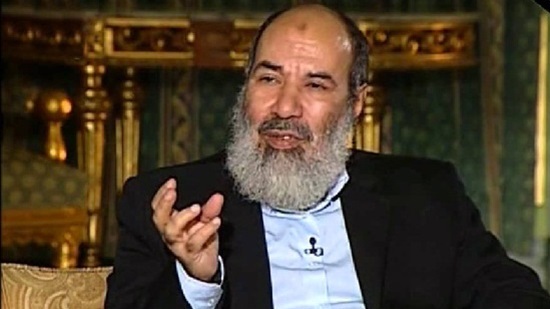Nageh Ibrahim, an expert on Islamist insurgent groups and a former jihadist, said in an interview with Ahram Online that the militant group Ansar Beit El-Maqdas is "having its last throes," as the group has become quite weak during the past year.
Beginning of the end for Sinai militant groups: Expert and ex-jihadist Nageh Ibrahim
TEST2
Copts and Poliltical Islam
09:08
Friday ,12 August 2016

"It cannot undertake big operations, such as the bombing of government buildings, like the bombing of the military intelligence building previously ... or massacre, or conduct operations outside Sinai."
"Instead, it has resorted to car bombs or suicide bombings, which were mostly handled well [by Egyptian security forces]."
Last Thursday, the Egyptian armed forces announced the killing of Ansar Beit Al-Maqdis leader Abu Doaa Al-Ansari and a number of his associates in air strikes.
Ibrahim, who was one of the founders of Al-Gamaa Al-Islamiya, said "this is the beginning of the end of the group."
Ansar Beit El-Maqdis lost control over the five main elements any such group depends on, as its human resources, finances, arms gathering capacity, communication network and mobility have all come under immense pressure while the group is not being able to recruit from Libya or the Gaza Strip, Ibrahim explained.
Two weeks ago, Islamic State (IS) group in Iraq and Syria released a recording on several operations of Ansar Beit Al-Maqdis group. According to analysis of the recording, the speaker is Abu Mohamed El-Anani who is not the usual spokesman of the group in Sinai, evidence that the group's network has been disrupted.
Ansar Beit El-Maqdis group, which originated in Sinai and claimed responsibility for most of the attacks against security personnel and installations in Sinai, pledged allegiance to IS in Iraq and Syria and its leader, Abu Bakr El-Baghdadi, in November 2015.
Ibrahim contends that not only is the IS-affiliated group in Egypt losing ground, but the Islamic State group itself is losing ground in Iraq, Syria and Libya.
"We are witnessing the international demise of the [IS] group."
"It was not only religiously and morally stupid; it was politically stupid as well," Ibrahim added, adding that the group claimed to be supporting the Sunnis in Iraq, yet caused further US/UK intervention in Iraq, as well as Iran's intervention in Syria.
Ibrahim also remarked that it is the first group to include outlaws, including drugs dealers, arms dealers and convicted felons.
"The future scenario is that IS group will fall in time," Ibrahim argued.
However, he said that the role of the state — particularly Egypt — is important. It should not "focus on security at the expense other things, such as overall development of Sinai."
Terrorist groups previously used the situation in neighbouring Gaza and Israel as a pretext, as happened with the three largest bombings that took place under former President Hosni Mubarak, in Sharm El-Sheikh, Dahab and Taba, he elaborated.
"What is required from the state is to address the effect of past battles, change the situation and improves the living conditions of the people, rather than just the tightening security," Ibrahim concluded.



